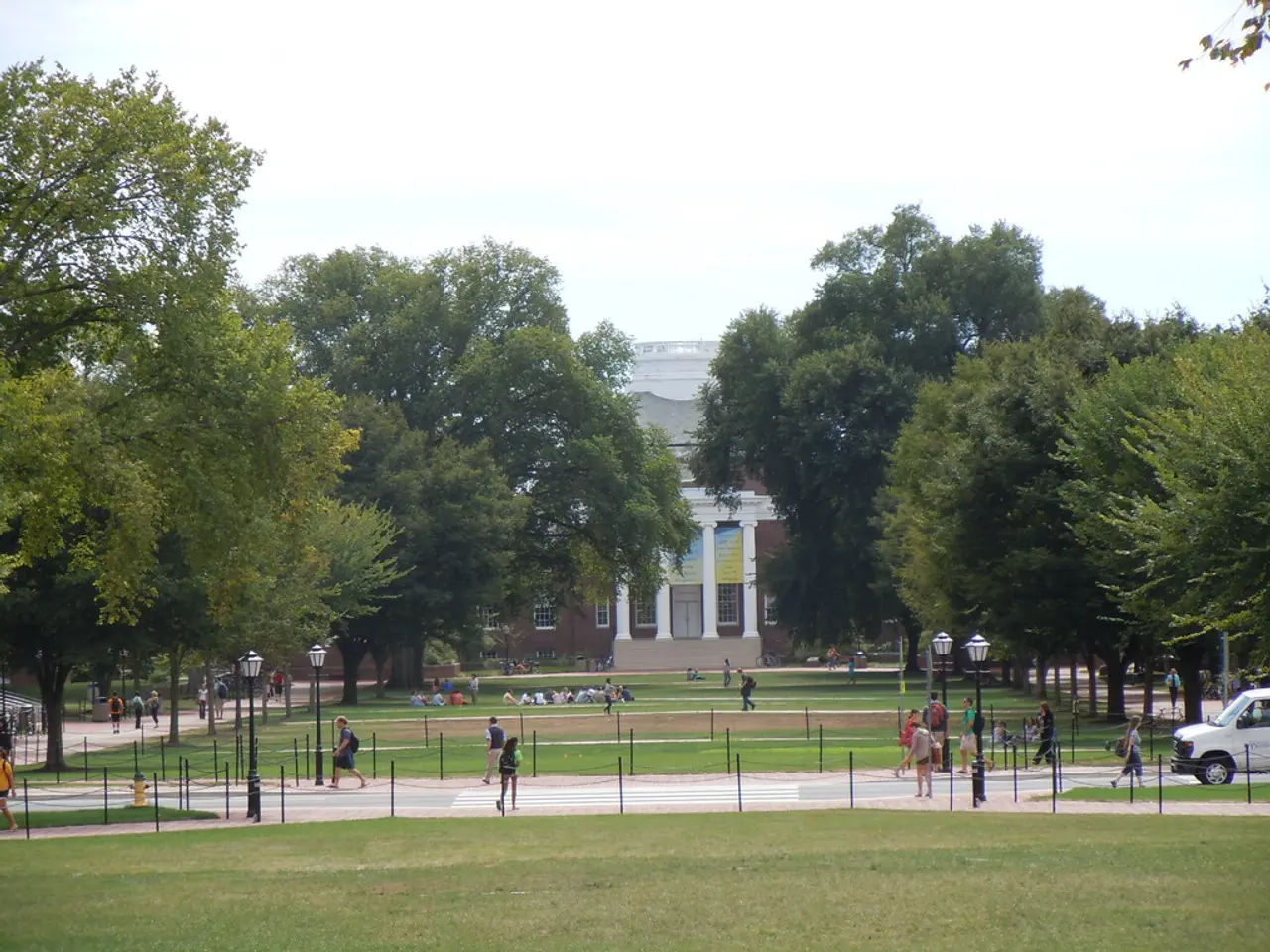Green Party advocates for a one-million-dollar plan to make universities environmentally sustainable
In a bid to make German universities more sustainable, the Greens have proposed a federal funding program to support institutions working towards climate neutrality. Kai Gehring, the Green faction's spokesperson for higher education, views universities as key players in the fight against climate change.
The proposal, which aims to allocate 600 million euros over four years, is seen as necessary to provide support and incentives for universities striving for climate neutrality. Many universities and colleges in Germany have already started working towards this goal, but the lack of mandatory ecological standards in building regulations poses a significant challenge, as noted by Ulrich Radtke, spokesperson for universities in the Higher Education Rectors' Conference.
Sustainability is increasingly influencing the choice of study location among students, and it is a matter of moral credibility for universities to address climate issues to remain attractive locations, according to Radtke. However, universities have to add ecological measures at their own expense in building and renovation projects, which can impact research and teaching funding.
The Greens' proposed funding program will be flexible enough to support institutions already active in sustainability and stimulate locations where the topic has been less prominent. This federal program will complement existing funding programs, such as the Excellence Strategy, which supports research clusters that may integrate climate and sustainability topics.
The challenge in implementing sustainable practices at universities, especially concerning their building stock, lies in the complexity and scale of renovating or upgrading existing infrastructure. Many university buildings are older and require significant energy-efficient retrofitting to meet climate neutrality goals. This is a broader problem across Germany, where sustainable building renovations have to contend with funding allocation and bureaucratic hurdles, as well as balancing heritage preservation and modern standards.
The Greens' plan also includes a "Climate Innovation Fund" to support committed individuals and initiatives. The scientific community is encouraged to reduce its own greenhouse gas emissions, according to the Greens' resolution. Non-university research institutions can also receive funding if they submit a comprehensive concept.
The Greens' proposal for a federal funding program is welcomed by Ulrich Radtke, who notes that while there is a will to act on climate issues at many institutions, funding is often lacking. The federal funding landscape supports research innovation that can foster climate action, but practical challenges remain in securing and allocating funds for sustainable renovation of university building stock, navigating bureaucracy, and integrating climate goals into public procurement and construction practices.
This situation underscores the gap between research excellence funding and systemic sustainability implementation in infrastructure within German universities. The Greens' proposal aims to bridge this gap and make German universities more sustainable, contributing to the fight against climate change and making them more attractive locations for students.
- The Greens' proposal for a federal funding program offers support to universities and colleges that are striving for climate neutrality, particularly in the area of environmental science, which plays a significant role in understanding and combating climate-change.
- The proposed Climate Innovation Fund is designed to support not only universities but also non-university research institutions in their efforts to reduce their greenhouse gas emissions, as part of the broader movement towards education and self-development in sustainable practices.
- The Greens aim to make German universities more attractive for students by addressing the issue of sustainability, recognizing that this focus on sustainability is increasingly influencing the choice of study locations among students and is a matter of moral credibility for universities to address climate issues.




